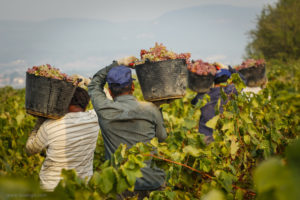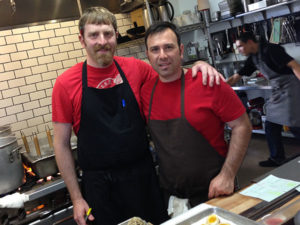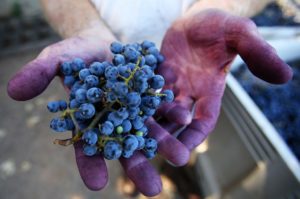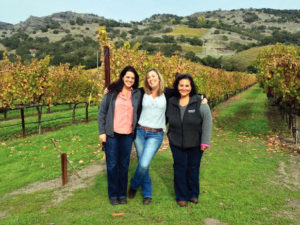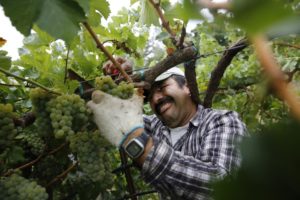
There’s lots of buzz in Alexander Valley this morning about rumors that Chef Douglas Keane may be planning Cyrus 2.0 somewhere in the vineyards with the support of Jackson Family Wines (hint: Barbara Banke).
According to an email sent to members of the Alexander Valley Winegrowers Association, locals and potential neighbors of the new project have been contacted by Keane and his business partner, Nick Peyton, to discuss the top secret plan.
Biteclub reached Keane this morning, who said,”I am very excited about the prospect of keeping Cyrus in Sonoma. As a resident of Alexander Valley I hope to continue to have a positive line of communication with my neighbors in AV and the County.
Nick Peyton and I have been dreaming about the possible reopening of Cyrus for a while. Hopefully our dream will come true.”
As you may remember, Keane operated the Michelin-starred Cyrus at the Les Mars Hotel until 2012, when a dispute between himself and the owners resulted in the closure of the restaurant — and much disappointment for Sonoma County’s dining scene.
What’s buzzing through the grapevine is that the “big names” wanted Keane to stay in Sonoma County rather than lose him to Napa or beyond. According to the email: “To keep Cyrus in Sonoma, JFW (Jackson Family Wines) will give him the property for this use, absolutely free of JFW management or pressure on his operations and wine selections.”
Keane agrees, “I hope I get to keep Cyrus here! It belongs in Sonoma County!”
We agree.
+++++++++++++++++
Here is a copy of the letter sent to AVW Membership on Sept. 2, 2014.
Dear AVW Membership,
Over the course of the last few weeks, Alexander Valley resident and acclaimed chef, Douglas Keane has reached out to the association to share his extraordinary vision to create a world class restaurant in our valley and to earn our support of his restaurant, “Cyrus”. Below are the details Mr. Keane has shared with us. Please take a moment to read the information below and please share your comments or questions with Jan Gianni in our office. info@alexandervalley.org
· Doug is planning to build his fine dining “CYRUS” restaurant on a small parcel owned by Jackson Family Wines(JFW), just past the Jimtown store on opposite side of HWY 128.
· To keep Cyrus in Sonoma, JFW will give him the property for this use, absolutely free of JFW management or pressure on his operations and wine selections.
· The property is not planted and has 3-4 old structures, including the old blacksmith’s shop which JFW plans to move to its original historic site immediately west on 128 and repurpose.
· Cyrus will not have a presence on HWY 128, blending in with well-planned landscape design and minimum signage at the Stonestreet entrance.
· Guests will enter through the Stonestreet entrance and JFW has agreed to the removal of 40-60 vines to provide access.
· Cyrus will serve 36-48 guests five nights a week for forty-nine weeks a year with 3-4 seating’s between 6:00 and 9:00 p.m. to accommodate a maximum of 12 guests/seating.
· The restaurant will have no bar seating with a full liquor license as an amenity, exclusively for dinner guests with reservations booked and sold up to 6 months in advance.
· Lunch service, 1-2 per month, may add in the future but not to more than 36-48 guests per lunch.
· Doug is willing to encumber the parcel with a restriction on max cover to 48 in perpetuity to eliminate an increased use in the event the property or business is sold.
· Parking will be provided for 39 cars (15 employees, 24 guest slots).
· Doug plans to file his application with the county in the next 30 days. JFW will file an application concurrently for removal/repurposing of blacksmith’s shop as a tasting room or other use.
The AVW are in no place to either offer or deny support at this time, until we hear from you. Will the addition of CYRUS restaurant drive our mission to increase awareness of and appreciation for, the unique qualities of Alexander Valley and our extraordinary wines?
We value your opinion and will continue to strive to represent you as best we can. Thank you.



